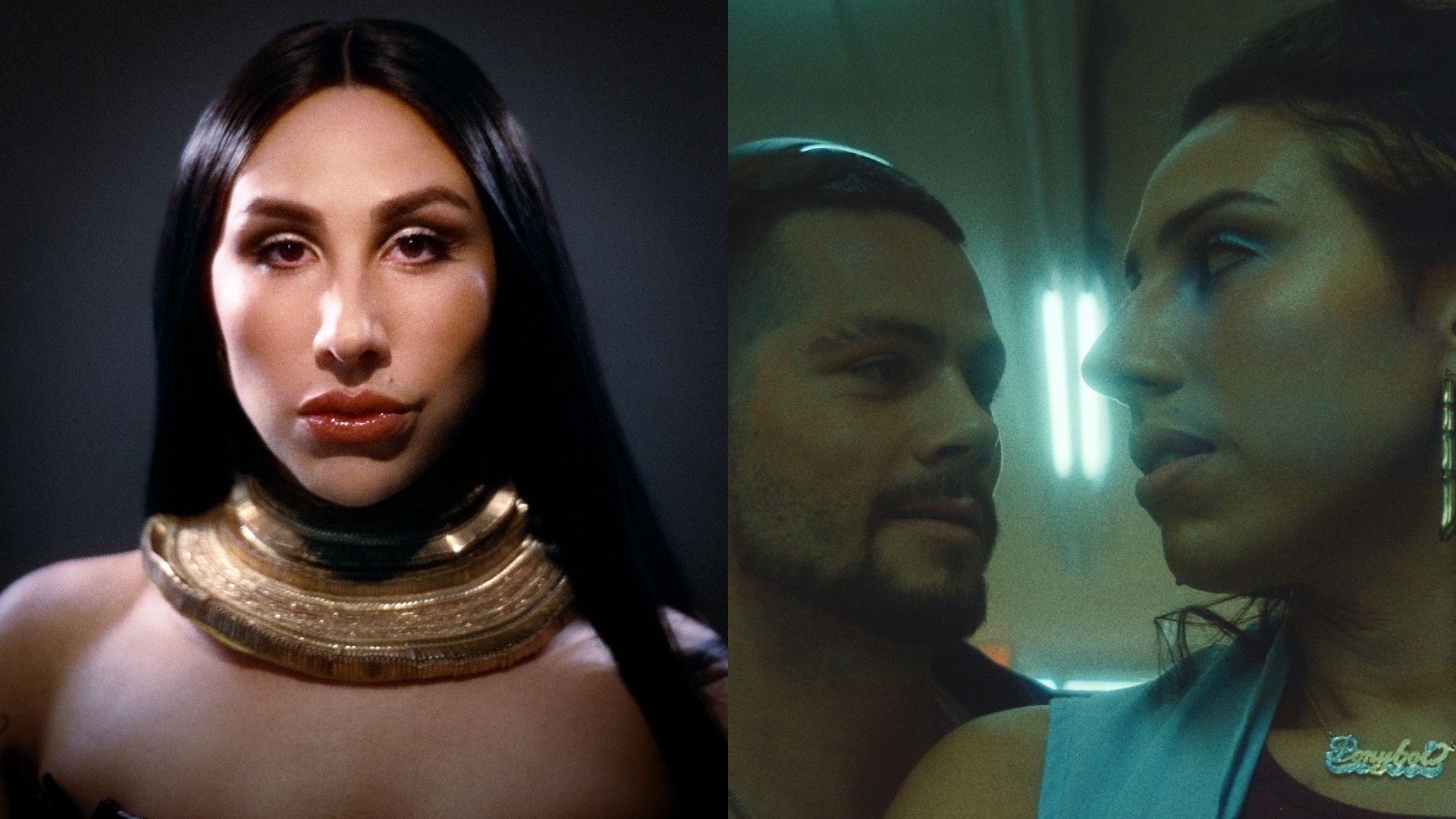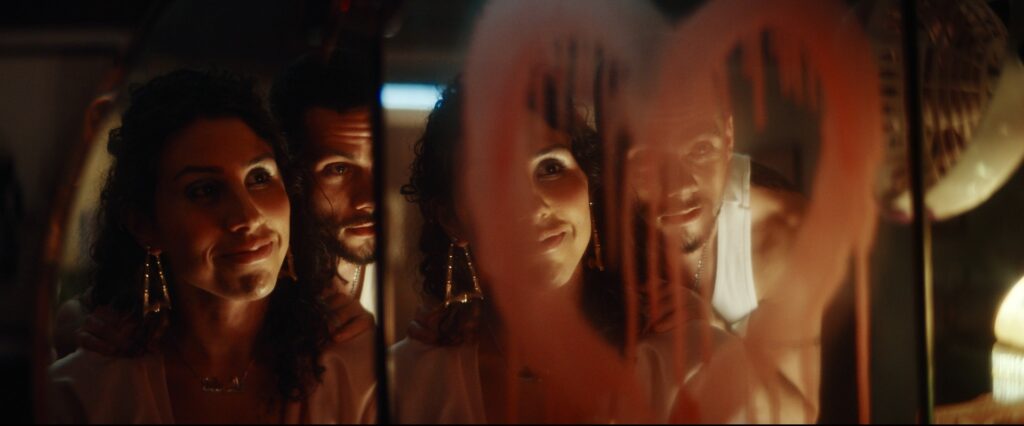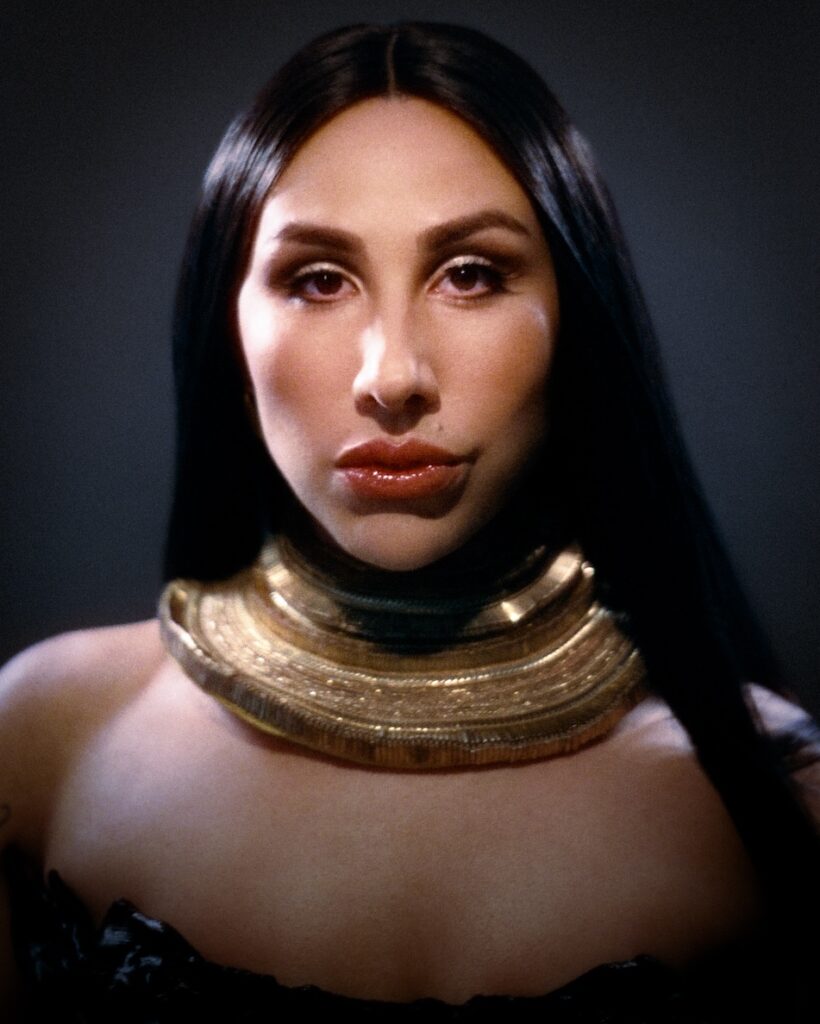Ponyboi’s River Gallo: Meet the filmmaking talent bringing intersex representation to BFI Flare (EXCLUSIVE)
Their new film is an explosive tale of an intersex sex worker escaping their pimp. Ahead of screenings at BFI Flare London LGBTQIA+ Film Festival, writer-actor River talks working with Indya Moore and Dylan O'Brien, plus their thoughts on the Oscar-nominated Conclave

Talk us through Ponyboi’s journey from short film in 2019 to feature film in 2025…
When we were doing the short, I believe BFI Flare was the first national festival it played at. Of course, any artist or filmmaker in any medium creates work with longevity in mind. But now, to be talking about the movie all over again, but they’re different movies… But it’s the same for me. It’s the 10-year cycle of this journey, this one character, this one world. It’s surreal, honestly, to have been living inside something so personal, that’s become so much of how I introduced myself to the world as a professional artist. I still can’t wrap my mind around it. I’m so excited to share the larger vision.
To what extent is this project autobiographical?
In many ways, this film became more autobiographical. In the short, the intersex narrative is almost just one scene; the flavour of this character’s psychology, how they were affected by being intersex; what that meant for their capacity and willingness to love or be loved. In this version, there’s a whole narrative about Ponyboi coming home to his father, to the family home. That’s part of the reason that they ran away – because [their parents were] unwilling to accept the gender nonconformity he was expressing. I have to say, my parents are really great. That part isn’t very autobiographical. But, you know, it took a while to get there.
There are scenes where you see a young version of Ponyboi, which is taken out of my memories of life, of going to doctors’ offices with my parents. You know, having them pray in the corner. They’re Catholic. I remember shooting those scenes. It felt like, what am I doing? I’m literally recreating traumatic parts of my life. And I think what the director Esteban [Arango] did so beautifully is create those as a colour and paint used sparingly, to give us a look at Ponyboi’s interior; the landscape of their mind. But the story’s rooted in present circumstance. A person who’s created so much chaos in their life, because of trying to deal with that pain and trauma. This one particular night, everything comes to a head. That is, in some ways, autobiographical, maybe in psychology. But – no spoilers! – not in any kind of crime!
How do you identify in terms of gender, sexuality and pronouns?
I use they/them pronouns. I identify as intersex, non-binary and transfemme. That has changed. During the short, I was still using he/him pronouns. I guess I was just identifying as intersex, or an intersex man. I think the work, the art, the film – Ponyboi itself – actually made me come out in these different gender expressions. It’s interesting how the film has this reflexive, reciprocal, mirroring quality. It’s affected me as much as I created and affected it.

I loved the scene with Indya Moore, and the fascinating observation about the smoke and mirrors of how we present ourselves. I imagine that was a bigger conversation between you and Indya before and after the scene?
I knew from the beginning I was going to have to collaborate with the actress we cast. Originally, that scene was on the chopping block. ‘The scene isn’t working’. I was like! ‘No! It will! Trust me!’ Because I feel it’s the soul of the movie. Then we added more conflict to it, to create a conversation that could go into those dynamic realms of talking about gender in a nuanced [way]. You really don’t know where they’re going with this conversation. It’s almost terrifying to watch. But you also can’t keep your eyes away. Because you know they’re onto something. Onto something that’s never been seen on-screen. An intersex person talking to a trans woman, then realising their similarities and differences and, ultimately, their solidarity. I think it was Indya, in some early rehearsals, who said: ‘These are some things I want to add.’ She’s the one that really brought in the conversation around realness in trans communities, particularly in the voguing community, one I have never been part of, so I couldn’t speak to that experience. But Indya made me realise, it [can be] so much about this hierarchy of, if you could ‘pass’, that makes you better than other girls. And here Ponyboi comes in. It’s like, what if I’m neither? Or maybe I don’t know yet? Then, that feeling of, we’re so much more similar when we’re able to break down that barrier, build this bridge.
I love that you got Indya. The cast is amazing. Talk us through how you got Murray Bartlett, Victoria Pedretti and Dylan O’Brien?
Murray came to a screening of the short at Tribeca. We met, he says. I don’t remember this. A few months later, he called via Facebook. ‘Hello, it’s Murray!’ I was like: ‘OK!’ My number was on Facebook at the time, so I quickly took it down after that! But he loved the movie and wanted to stay in touch, potentially collaborate. Years passed. We lost touch. Then, when we were looking for actors for the feature, our director was like, ‘What about Murray Bartlett?’ I watched The White Lotus was like: ‘He’s perfect.’ So, I emailed him. He’s become such a great mentor and dear friend since then.

Victoria, we’d been introduced because we were at the same management company. We actually started hanging out and became friends before. Victoria was the first one cast. I mean, her emotionality, the ability to lose yourself in the character – so magnificent. I’ve seen her since on Broadway. I love and respect her so much as an actor. Indya, also, we knew each other through mutuals. But then we were represented by the same company as well. We offered Indya the role, and she was another one that became such a dear friend, and helped me look at Ponyboi through the lens of transness. In a way I always wanted the film to be, and to examine, but just took it to a level I couldn’t conceive of on my own.
The hardest role to cast was Dylan’s. We were conscious we needed an actor brave enough to go there – play this transamorous, abusive pimp. It was hard on page, because it could have been played a number of ways. He’s definitely the villain. But I always pictured a character rooted in this traditional suburban, small-town mentality. Of wanting to be a father, wanting to ‘provide’. Which, in and of itself, is a noble quality. But you mix it with toxic masculinity – it presents a specific breed of man that’s horrible. Dylan, instantly, we were cut from the same cloth. I was like: ‘This is like a guy I went to high school with!’ He brought so much humour to the role. Dylan’s one of the funniest humans alive. Dylan’s affability, and ‘charming-ness’ made you, like, hate the character, but also want to fuck the character, too! It’s just the right combination of charm and disgust.
Stephen Fry was involved in the short. Was he involved in the feature?
Stephen’s been like a fairy godfather from afar – from across the pond! – since the short. He read drafts of my feature. There were some little producing conflicts that he stepped in and helped me sort out and navigate. Just as an actor, a friend, a mentor, during the process of the feature. All out of the kindness of his heart, for the belief of the work. I’m so grateful.
What else are you working on?
I’m writing my next feature now. I was like, ‘I don’t want to do something personal. I’m going to do something completely made up.’ And I’ve found myself creating something maybe even more personal, based on my reflections of love, grief and death. I’m excited. Because it reminds me of films I grew up loving, that made me fall in love with cinema: Lost in Translation, Eternal Sunshine of the Spotless Mind. The dark romantic comedies that made me want to be a filmmaker.
This is a great moment for intersex representation, with your film, and Conclave, which reportedly features an intersex character. Have you seen it?
It’s been on my list for the last month! Now I feel embarrassed I haven’t seen it! But I will say this. I know the ending. In some ways, I’m mad at myself for telling my friend: ‘Just tell me the ending.’ I’m aware it’s not played by an intersex [person], or, to my knowledge, no intersex person was involved in the creation of it. I’m not a purist, in knowing it takes an incredible amount of work for any movie to get made. I’m a firm believer that a work of art attracts the components needed to make its creation possible. And people love the movie. So, to me, I’m all for any type of intersex representation, especially if it’s good. And people are loving this movie. I’m thrilled it’s nominated for an Oscar, and people are getting a different context into the intersex experience.
The BFI Flare: London LGBTQIA+ Film Festival will take place at BFI Southbank from 19-30 March. Tickets will go on sale from 25 February for members and general sale from 27 February via bfi.org.uk/flare.
